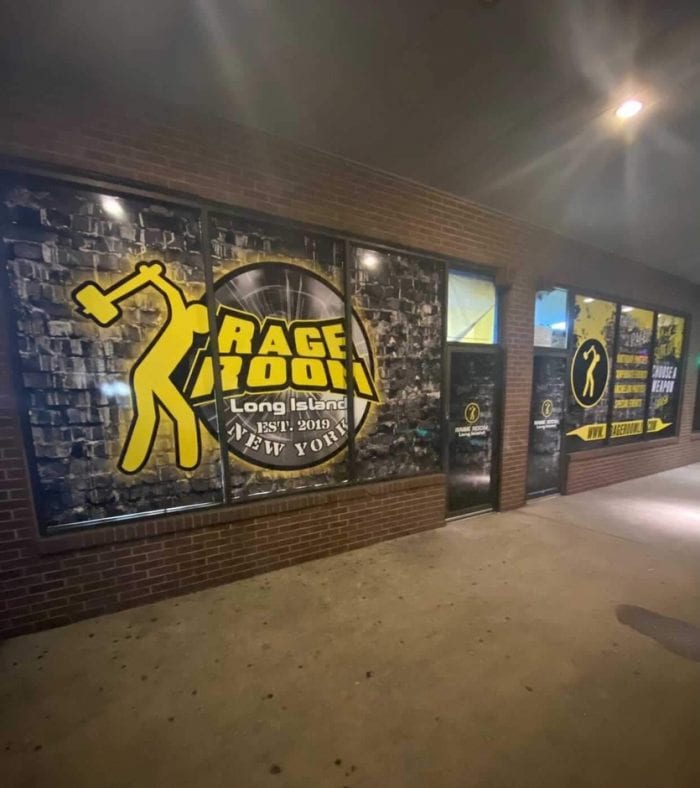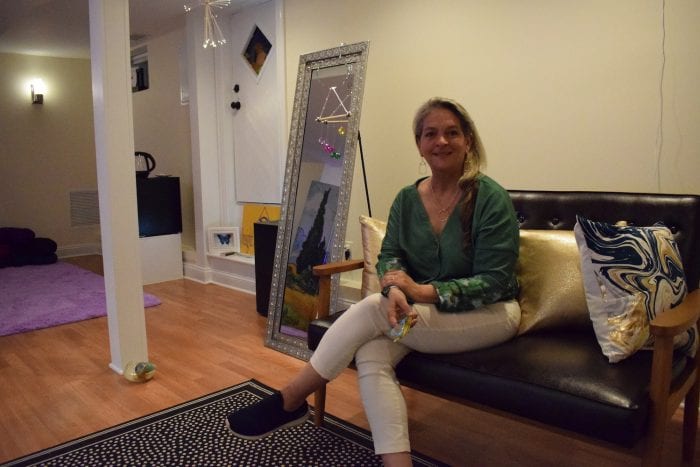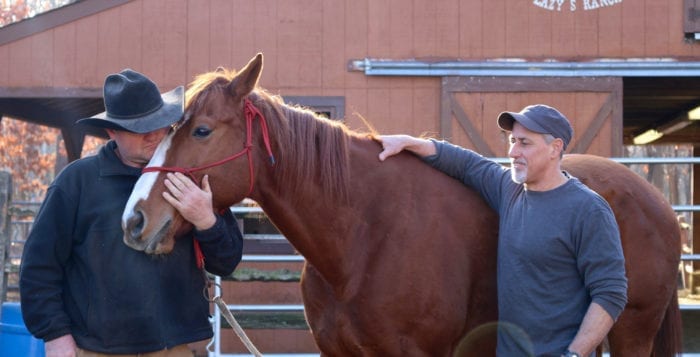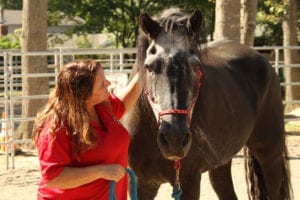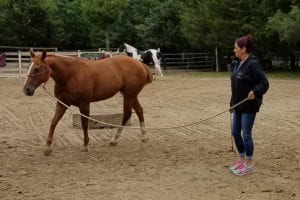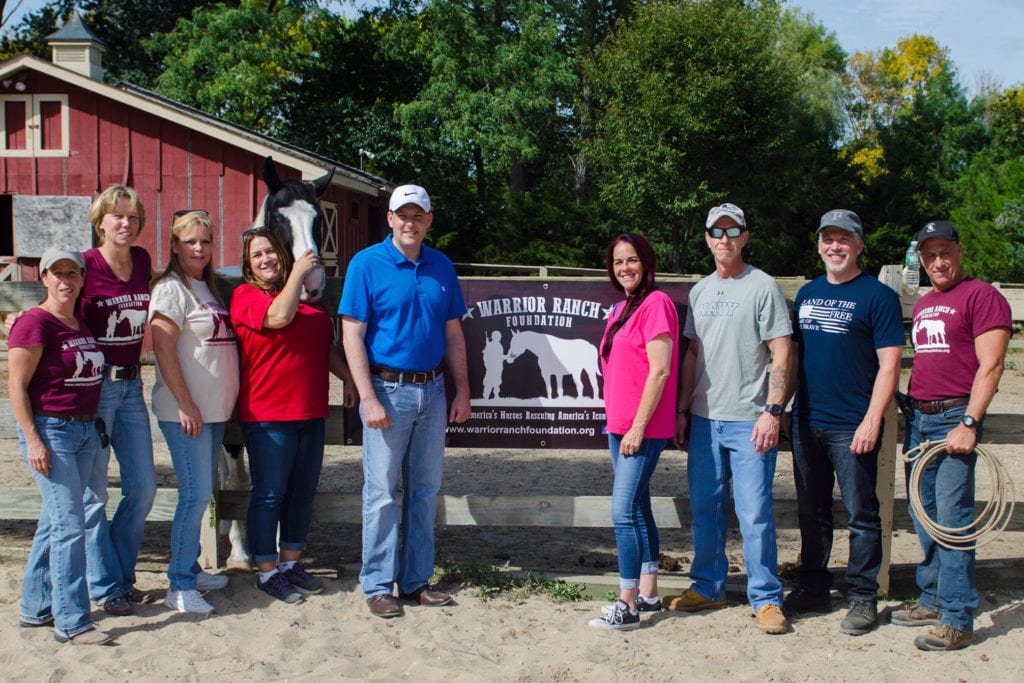By Chris Mellides
Growing up with video games was commonplace for many children and teens throughout the 1980s, 90s and beyond. But what if these pixelated worlds weren’t designed to spoil your mind as so many parents would insist on, following Saturday morning cartoons and bottomless bowls of Cap’n Crunch cereal?
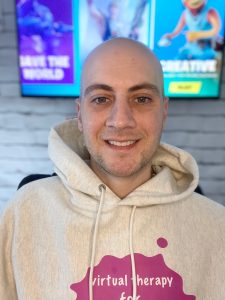
What if, instead, video games helped repair those young, developing minds?
Regarding the topic, 33-year-old East Northport resident and licensed clinical social worker, Joe Conlon, and founding partner Mary Hind, a clinical social worker and therapist herself, answer back with their business Virtual Therapy for Kids.
The service they created is built around the most accessible and widely consumable media in the world — video games, where some of the more popular titles include online available juggernauts such as Fortnite, Minecraft and Roblox, according to Conlon, who leaps out of his therapist’s chair and into a virtual world where “meeting the clients where they’re at” is paramount, and where playing alongside them holds its own blend of fun and incremental learning, according to him.
Conlon recalls a time before COVID-19 when parents of children with developmental disabilities would be running late only to request a phone session for their child and Conlon would simply refuse to make the appointment.
“I just cannot do it over the phone,” he said. “It’s so hard to connect with the kids, especially [when] audio and video wasn’t even a thought.”
Hind offers her own insight, which aligns with her business partner. Hind hails from Babylon, graduated from Hunter’s Silberman School of Social Work in 2019 with a focus on Children and Adolescents and Child Welfare and is a fierce advocate for the mental health of the children she serves.

“Working with a niche population and being virtual, allows me as a therapist, to capitalize on kids having sessions in the comfort of their own space,” said Hind. “This means allowing kids to create a therapeutic environment, with far less pressure than a traditional therapy setting.”
The focus is on engaging with children and adolescents between the ages of 4 and 17 in a way where cognitive behavioral treatment transforms into online gaming therapy — a concept that the young entrepreneur credits to the children that altered his view of what remote learning could become.
It’s hard to believe that as founding members, Conlon and Hind have yet to meet in person, and though they are apart, together they forge a business partnership intended for the betterment of children and the parents that require the help of professionals.
“I’m taking the symbolism in the game and making parallels to life,” Conlon said. “Kids say you’re much more yourself when you’re in these digital worlds.”
He added, “I’m trained to see where the kid has anxiety based on what the parents tell me. Kids with ADD [attention-deficit disorder] and ADHD [attention-deficit hyperactivity disorder], for example, are overly emotional.” And so they require interaction with Conlon and Hind, who log on and set goals for their kid clients to complete on a weekly basis within a particular video game title.
In Fortnite, Conlon will instruct his clients to complete a seemingly difficult task, such as building a wall to guard against oncoming attacks from other competing online players.
The response to the goals that the two licensed therapists set have been very positive, according to Conlon, who also said that his clients get excited completing a complex task requiring concentration, and that the parents of these children are overjoyed in sharing with a child’s achievement.
In what seems like an endless pandemic, business partners Conlon and Hind see potential for the growth of their business and for aiding their communities both on and offline where therapy and consultation rates start at $45. Their website is www.virtualtherapyforkids.com.
Older parents attempt to understand a generation growing into the next evolutionary cycle of the internet, and what that means for the emotional health and well-being of their children can be distressing, according to Conlon.
“How they cope in an ever-changing world where digital avatars and virtual gaming has become the norm, fitting in and navigating tenuous relationships is harder than it has ever been before,” Conlon said.
“Diagnosing kids is what led me to diagnose myself,” he said. “Having ADHD, we’re more likely to keep thinking outside the box.”
“When you’re stuck in the storm, you go and get some bandages, go find a safe spot and go back into battle,” Conlon said, which is perhaps a lesson in gaming and life in general.


